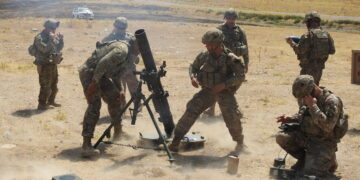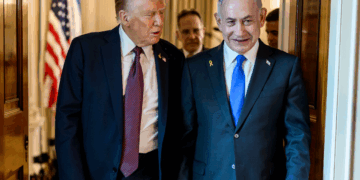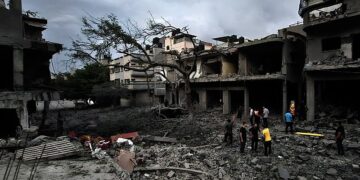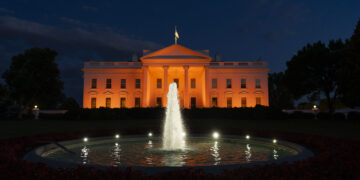
Following Israel’s assassination of Hamas’s leader, Ismail Haniyeh, the Middle East is on the brink of regional war. The killing occurred in Tehran after Haniyeh attended the inauguration of Iran’s President Masoud Pezeshkian, a moderate who campaigned on reengaging the West. Pezeshkian has been open to negotiating a revival of the Joint Comprehensive Plan of Action (the Iran nuclear deal). But Israel’s attack makes that less likely—and raises the odds of the U.S. getting dragged into war with Iran.
Strangely, the best bet for improving relations with Tehran and putting the Iran deal back together may be a return to the White House of Donald Trump, the very man who blew up the accord in 2018. To understand why, consider an old American adage.
“Only Nixon could go to China” captures a general truth about politics in a polarized democracy. Conservative politicians who pursue liberal policies, and liberal politicians who pursue conservative ones, signal that those policies really are in the national interest. Nixon’s reputation as an anti-communist liberated him to try improving relations with Red China in 1972, since voters could then infer it wasn’t some peacenik aspiration.
This dynamic helps explain why President Joe Biden, early in his presidency, failed to revive the JCPOA, which likely would have involved lifting all of Trump’s “maximum pressure” sanctions and removing his designation of the Islamic Revolutionary Guard Corps as a terrorist organization. Had Biden freed up funds for the “mad mullahs” and legitimized the IRGC, he would have gotten hammered by the same forces that panned his Afghanistan withdrawal, from which his poll numbers have never recovered. To many voters, these steps would have seemed part of a reckless liberal agenda, and Biden would have seemed weak. Kamala Harris, if elected, would face the same political calculus.
More on Middle East

Featuring Daniel DePetris
October 8, 2025
Events on Iran








